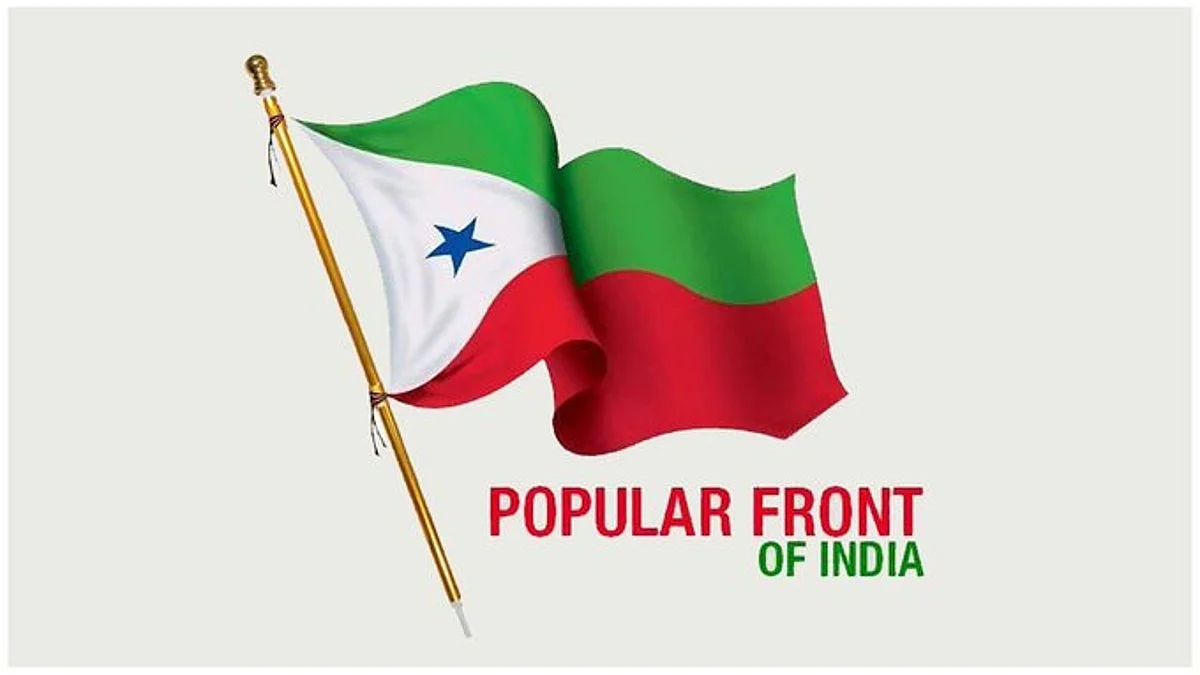How the now-banned Popular Front of India came into being
PFI came into existence following a merger of the Karnataka Forum for Dignity (KFD), Tamil Nadu-based Manitha Neethi Pasarai (MNP) and the National Development Front, which was banned in 2006

The Union government, after conducting raids on the Popular Front of India offices across seven states on Tuesday, September 27, 2022, issued a notification the next day banning the organisation and several of its affiliates. More than 1,400 criminal cases have been registered against its leaders and activists
The Popular Front of India (PFI), and its affiliate organisations including its student wing, the Campus Front of India (CFI), Rehab India Foundation (RIF), All India Imams Council (AIIC), National Confederation of Human Rights Organization (NCHRO), National Women’s Front, Junior Front, Empower India Foundation and Rehab Foundation, Kerala, have been banned by the Ministry of Home Affairs for five years.
The official Twitter account of the Popular Front of India (PFI) was withheld on Thursday, a day after the outfit was banned by the Centre. The account, which had over 80,000 followers, has been withheld “in response to a legal demand”, the social media website said. The Twitter accounts of its chairperson OMA Salam (@oma_salam), with 50,000 followers, and general secretary Anis Ahmed (@AnisPFI) with nearly 85,000 followers have also been withheld.
Raids were also conducted in UP, Maharashtra, Gujarat, Assam, Madhya Pradesh and Delhi. Officials said 57 people were detained in UP and 48 in Maharashtra.
Shaheen Kausar, who gained prominence during the Shaheen Bagh protest in the national capital, was among several dozen activists detained. The NCHRO general secretary P Koya, and secretary A Mohamed Yusuf, were among those held in the mass arrests of alleged PFI members last week.
It is important now to take a look at the origins of PFI.
In the aftermath of the Babri Masjid demolition in 1992, the Kerala-based Indian Union Muslim League had treaded a cautious line and its middle path then had immensely benefited the Kerala society. Unsatisfied with the sobering stand taken by IUML, which was in power along with UDF in Kerala in 1992, several people revolted.
A few of them came together to form the National Development Front (NDF) after a public meeting at Mudakulam maidan in Kozhikode on November 13, 1993. The stadium was filled to capacity, yet the press and the police did not know about the origins of the organisation. A simple press release was sent out and eventually it came to be known that E Abubacker and Professor P Koya were at the helm of affairs. Koya was also one of the founding members of SIMI, which was banned in 2001.
Parallel to this development, Abdul Nasser Madani’s popularity was on the rise and he formed the Islamic Seva Sangh (ISS) in 1989. This organisation was banned following the demolition of the Babri Masjid in 1992 and he then formed the Kerala-based Peoples Democratic Party (India). He had called for Muslim-Dalit resistance through the formation of his party.
These developments in Kerala were occurring in the backdrop of the growing acceptance of the rigid Wahabi form of Islam in northern Kerala. It began to be considered as a purer form of Islam. The ISS and PDP began to draw the interest of younger Muslims who were not satisfied by IUML’s politics and wanted to take an extreme stand to the growing discrimination and political ostracisation of Muslims.
Kerala Police investigations revealed that some of those who were part of ISS eventually came together to form NDF. Eventually, when the NDF was banned in 2006, PFI came into existence following a merger of Karnataka Forum for Dignity (KFD), Tamil Nadu-based Manitha Neethi Pasarai (MNP) and NDF.
The PFI's national chairman, Abdul Rahiman was the former national secretary of SIMI, while the organisation's state secretary, Abdul Hameed, was its former state secretary.
Investigations have revealed that PFI relies on remittances from Muslims across Qatar, Bahrain, Kuwait and Turkey for its funding. It had a presence in 16 states: Andhra Pradesh, Assam, Bihar, Delhi, Goa, Karnataka, Kerala, Madhya Pradesh, Maharashtra, Manipur, Rajasthan, Tamil Nadu, Telangana, Uttar Pradesh and West Bengal.
PFI’s political arm, SDPI, was launched on July 29, 2009, with the aim of mobilising the vote bank of Muslims and other backward sections to attain political bargaining power. SDPI registered as a political party with the Election Commission of India on April 12, 2011.
The MHA ban doesn’t extend to SDPI and though both PFI and SDPI have separate leaders, the cadre overlaps between the organisations. The party has won local body elections in Kerala, Karnataka and Tamil Nadu.
Follow us on: Facebook, Twitter, Google News, Instagram
Join our official telegram channel (@nationalherald) and stay updated with the latest headlines
